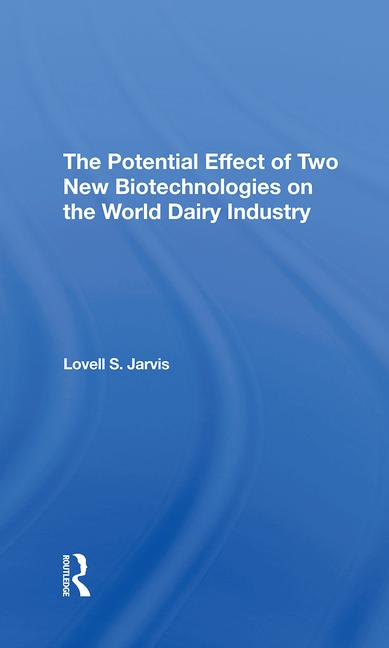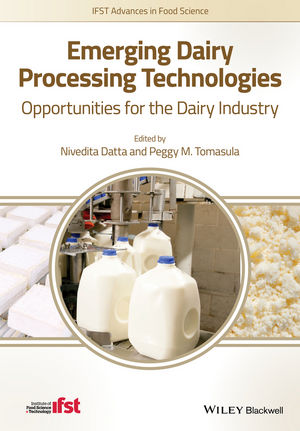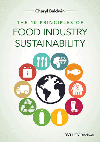IDDBA CEO: Gen Z and AI will change the industry
José Andrés and Chip and Joanna Gaines provide some fun anecdotes during the Houston tradeshow.

Photo courtesy of kazuma seki via gettyimages.com.
In June, I traveled to Houston to attend the International Dairy, Deli and Bakery Association (IDDBA) show. Of course, dairy is only part of that equation, but I believe several insights shared during the annual conference could be interesting for dairy processors.
These include those made in a speech delivered by David Haaf, president and CEO of IDDBA. Haaf looked into the future to see what trends will change the industry and focused heavily on Generation Z, those born between 1996 and 2010. Haaf believes Gen Z will change the workforce in many ways.
“There will be an expectation of constant change. … They are one search engine away from readily seeking out answers for themselves,” he states. “They want to make a difference. Not only do Gen Zs want to make a difference, they want to be employed at a place that is going to do good for the world.”
Gen Zs also value collaboration and teamwork, he adds. “They prefer less hierarchy and more collaborative leadership. Everyone has a say,” he notes. “They have a high priority on mental health and work-life balance. This does not mean they expect to work from home [though].”
Haaf notes that loyalty for Gen Zs is much different than other generations, as they have no qualms about leaving an opportunity for something they believe is better. “What does this mean for companies? Invest in HR management training to better understand mindsets,” he states. “Extra time and money must be spent meeting the workforce where they are. Establishing internships and professional development programs that involve relationship building, people skills and personal development is critical.”
Haaf also stresses the future of artificial intelligence (AI). This includes ingredient development via sentiment analysis, as well as demand forecasting and inventory management. “This is an area where AI sparkles,” he relays. “We can even customize products based on seasonality and holiday favorites.”
Internet of Things (IoT) is another technology Haaf is certain will change the industry. IoT refers to a network of devices that can communicate and share data over the internet.

Augmented reality, which enables customers to order products in real-time, and visualize things like toppings on foods, will enhance the customer experience as well, he adds.
However, Haaf did warn that companies must ‘control’ AI. “Do not let it control us. AI can bring a whole new set of challenges and concerns,” he cautions. “But AI and technological advancements — like them or not — are here to stay. Embrace it. Learning it and ramping up resources for it will be critical in the months and years to come.”
José Andrés/Chip and Joanna Gaines
In addition to Haaf’s keynote, IDDBA interviewed World Central Kitchen Founder José Andrés and reality TV stars Chip and Joanna Gaines, who provided several interesting anecdotes. Andrés described his love for food and shared recipes with attendees.
Chip and Joanna Gaines discussed their humble beginnings, Joanna as a mechanic and Chip as a Jack-of-all-trades. “My father wanted a son to take over his business. I raised my hand as his middle daughter and said I will take on the business,” Joanna states. “But then I met Chip in the lobby [of our business], went on a date after that, and later we married.
“When we were engaged, I remember showing Chip this book of dreams I had. My dreams were a bakery, a spa and a retail store,” she continues. “I had no business doing those things. I had no experience. I went to school for broadcast journalism. But Chip told me he did not understand why I would not try to [achieve] one of those.”
Chip says he had a different upbringing than Joanna, whereas he would start businesses and evaluate what went wrong if it failed, whereas Joanna would have “pages and pages” of notes about starting businesses with no intention to actually do so.
“In 21 years of business, it has not gotten easier. It got harder,” Joanna asserts. “Growth is fun, but we never want to grow for growth’s sake.”
“In 20 years of marriage, I can honestly say I am an optimist. [Joanna] won’t say she is a pessimist. She hides behind this phrase that she is a realist,” Chip relays. “There is a reason Jo sees the world as she sees it and a reason I see the world the way I see it.”
It is “sexy” being an optimist, Chip continues, but cautions entrepreneurship is not right for everyone. “To be a successful entrepreneur, you cannot imagine yourself doing anything else,” Chip relays. “If that is true, maybe I would say you are built to [be an entrepreneur].
“It looks glamorous to be an entrepreneur. Jo and I could easily bamboozle someone that the life we chose is the most glamorous on the planet,” Chip concludes. “… But it is like running a marathon. Anyone can run a marathon, but is right for everyone?”
Looking for a reprint of this article?
From high-res PDFs to custom plaques, order your copy today!









